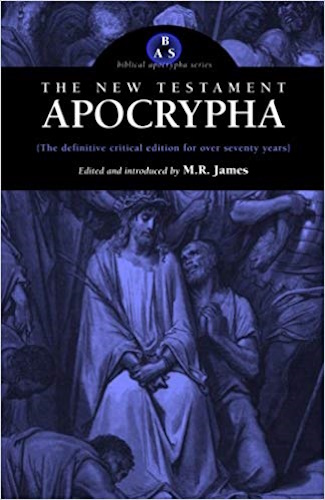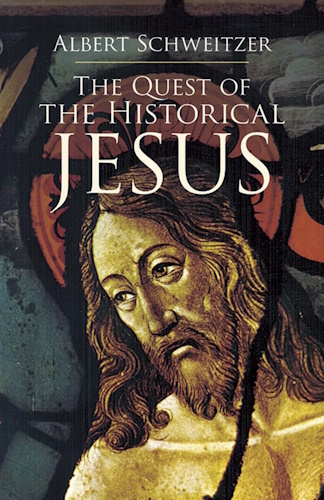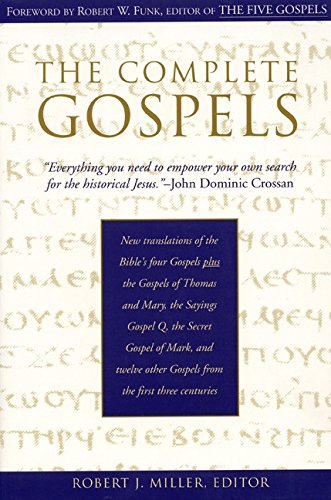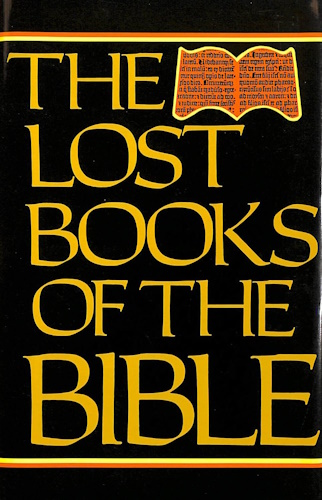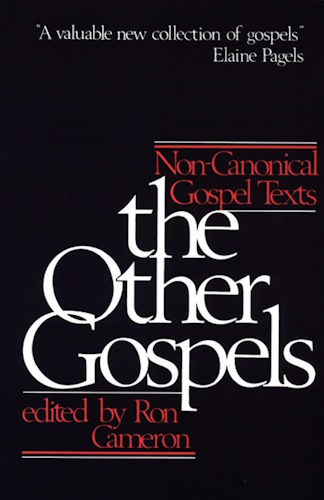
The Gospel of Peter
From "The Apocryphal New Testament"
M.R. James - Translation and Notes
Oxford: Clarendon Press, 1924
Introduction
The early testimonies about this book have been set forth already. The present fragment was discovered in 1884 in a tomb at Akhmimin Egypt. The manuscript in which it is a little book containing a portion of the Book of Enoch in Greek, this fragment on the Passion and another, a description of Heaven and Hell, which is either (as I now think) a second fragment of the Gospel, or a piece of the Apocalypse of Peter. It will be given later under that head.
We have seen that the Gospel of Peter is quoted by writers of the latter end of the second century. It has been contended that Justin Martyr also used it soon after the middle of that century, but the evidence is not demonstrative. I believe it is not safe to date the book much earlier than A. D. 150.
It uses all four canonical Gospels, and is the earliest uncanonical account of the Passion that exists. It is not wholly orthodox: for it throws doubt on the reality of the Lord's sufferings, and by consequence upon the reality of his human body. In other words it is, as Serapion of Antioch indicated, of a Docetic character.
Another characteristic of it is its extremely anti-Jewish attitude. Blame is thrown on the Jews wherever possible, and Pilate is white-washed.
In this case I give, in Roman and Arabic figures respectively, a double division into sections and verses. The first is that of Armitage Robinson, the second that of Harnack.
FRAGMENT I
I. 1 But of the Jews no man washed his hands, neither did Herod nor any one of his judges: and whereas they would not 2 wash, Pilate rose up. And then Herod the king commanded that the Lord should be taken into their hands, saying unto them: All that I commanded you to do unto him, do ye
II. 3 Now there stood there Joseph the friend of Pilate and of the Lord, and he, knowing that they were about to crucify him, came unto Pilate and begged the body of Jesus for burial. And Pilate sending unto Herod, begged his body. 5 And Herod said: Brother Pilate, even if none had begged for him, we should have buried him, since also the Sabbath dawneth; for it is written in the law that the sun should not set upon one that hath been slain (murdered).
III. 6 And he delivered him unto the people before the first day of (or on the day before the) unleavened bread, even their feast. And they having taken the Lord pushed him as they ran, and said: Let us hale the Son of God, now that 7 we have gotten authority over him. And they put on him a purple robe, and made him sit upon the seat of judgement, 8 saying: Give righteous judgement, thou King of Israel. And one of them brought a crown of thorns and set it upon the 9 Lord's head; and others stood and did spit in his eyes, and others buffeted his cheeks; and others did prick him with a reed, and some of them scourged him, saying With this honour let us honour (or at this price let us value) the son of God.
IV. 10 And they brought two malefactors, and crucified the 11 Lord between them. But he kept silence, as one feeling no pain. And when they set the cross upright, they wrote 12 thereon: This is the King of Israel. And they laid his garments before him, and divided them among themselves and 13 cast the lot upon them. But one of those malefactors reproached them, saying: We have thus suffered for the evils which we have done; but this man which hath become the 14 saviour of men, wherein hath he injured you? And they were wroth with him, and commanded that his legs should not be broken, that so he might die in torment.
V. 15 Now it was noonday, and darkness prevailed over all Judaea: and they were troubled and in an agony lest the sun should have set, for that he yet lived: for it is written for them that the sun should not set upon him that hath been 16 slain (murdered). And one of them said: Give ye him to drink gall with vinegar: and they mingled it and gave him 17 to drink: and they fulfilled all things and accomplished 18 their sins upon their own heads. And many went about with 19 lamps, supposing that it was night: and some fell. And the Lord cried out aloud saying: My power, my power, thou hast forsaken me. And when he had so said, he was taken up.
20 And in the same hour was the veil of the temple of Jerusalem rent in two.
VI. 21 And then they plucked the nails from the hands of the Lord and laid him upon the earth: and the whole earth was shaken, and there came a great fear on all.
22 Then the sun shone forth, and it was found to be the ninth 23 hour. And the Jews rejoiced, and gave his body unto Joseph to bury it, because he had beheld all the good things which 24 he did. And he took the Lord and washed him and wrapped him in linen and brought him unto his own sepulchre, which is called the Garden of Joseph.
VII. 25 Then the Jews and the elders and the priests, when they perceived how great evil they had done themselves, began to lament and to say: Woe unto our sins: the judgement and the end of Jerusalem is drawn nigh.
26 But I with my fellows was in grief, and we were wounded in our minds and would have hid ourselves; for we were sought after by them as malefactors, and as thinking to set 27 the temple on fire. And beside all these things we were fasting, and we sat mourning and weeping night and day until the Sabbath.
VIII. 28 But the scribes and Pharisees and elders gathered one with another, for they had heard that all the people were murmuring and beating their breasts, saying: If these very great signs have come to pass at his death, behold how 29 righteous he was. And the elders were afraid and came unto 30 Pilate, entreating him and saying: Give us soldiers that we (or they) may watch his sepulchre for three days, lest his disciples come and steal him away and the people suppose 31 that he is risen from the dead, and do us hurt. And Pilate gave them Petronius the centurion with soldiers to watch the sepulchre; and the elders and scribes came with them unto 32 the tomb, and when they had rolled a great stone to keep out (al. together with) the centurion and the soldiers, then all 33 that were there together set it upon the door of the tomb; and plastered thereon seven seals; and they pitched a tent there and kept watch.
IX. 34 And early in the morning as the Sabbath dawned, there came a multitude from Jerusalem and the region roundabout to see the sepulchre that had been sealed.
35 Now in the night whereon the Lord's day dawned, as the soldiers were keeping guard two by two in every watch, 36 there came a great sound in the heaven, and they saw the heavens opened and two men descend thence, shining with (lit. having) a great light, and drawing near unto the sepulchre. 37 And that stone which had been set on the door rolled away of itself and went back to the side, and the sepulchre was
X. 38 opened and both of the young men entered in. When therefore those soldiers saw that, they waked up the centurion and the elders (for they also were there keeping 39 watch); and while they were yet telling them the things which they had seen, they saw again three men come out of the sepulchre, and two of them sustaining the other (lit. the 40 one), and a cross following, after them. And of the two they saw that their heads reached unto heaven, but of him that 41 was led by them that it overpassed the heavens. And they 42 heard a voice out of the heavens saying: Hast thou (or Thou hast) preached unto them that sleep? And an answer was heard from the cross, saying: Yea.
XI. 43 Those men therefore took counsel one with another to go and report these things unto Pilate. And while they yet thought thereabout, again the heavens were opened and a 45 man descended and entered into the tomb. And they that were with the centurion (or the centurion and they that were with him) when they saw that, hasted to go by night unto Pilate and left the sepulchre whereon they were keeping watch, and told all that they had seen, and were in great agony, saying: Of a truth he was the son of God.
46 Pilate answered and said: I am clear from the blood of 47 the son of God, but thus it seemed good unto you. Then all they came and besought him and exhorted him to charge the centurion and the soldiers to tell nothing of that they had 48 seen: For, said they, it is expedient for us to incur the greatest sin before God, rather than to (and not to) fall into 49 the hands of the people of the Jews and to be stoned. Pilate therefore charged the centurion and the soldiers that they should say nothing.
XII. 50 Now early on the Lord's day Mary Magdalene, a disciple (fem.) of the Lord-which, being afraid because of the Jews, for they were inflamed with anger, had not performed at the sepulchre of the Lord those things which women are accustomed to do unto them that die and are 51 beloved of them-took with her the women her friends and 52 came unto the tomb where he was laid. And they feared lest the Jews should see them, and said: Even if we were not able to weep and lament him on that day whereon he was 53 crucified, yet let us now do so at his tomb. But who will roll away for us the stone also that is set upon the door of the tomb, that we may enter in and sit beside him and perform 54 that which is due? for the stone was great, and we fear lest any man see us. And if we cannot do so, yet let us cast down at the door these things which we bring for a memorial of him, and we will weep and lament until we come unto our house.
XIII. 55 And they went and found the sepulchre open: and they drew near and looked in there, and saw there a young man sitting in the midst of the sepulchre, of a fair countenance and clad in very bright raiment, which said unto them: 56 Wherefore are ye come? whom seek ye? not him that was crucified? He is risen and is departed; but if ye believe it not, look in and see the place where he lay, that he is not here: for he is risen and is departed thither whence he was sent. 57 Then the women were affrighted and fled.
XV. 58 Now it was the last day of unleavened bread, and many were coming forth of the city and returning unto their 59 own homes because the feast was at an end. But we, the twelve disciples of the Lord, were weeping and were in sorrow, and each one being grieved for that which had befallen 60 departed unto his own house. But I, Simon Peter, and Andrew my brother, took our nets and went unto the sea: and there was with us Levi the son of Alphaeus, whom the Lord (For Fragment II see Apocalypse of Peter.)
The Gospel of Peter
From "The Apocryphal New Testament"
M.R. James - Translation and Notes
Oxford: Clarendon Press, 1924
![]()
![]()
-
Urantia Book, 44:0.11 - The Celestial Artisans
Never in your long ascendancy will you lose the power to recognize your associates of former existences. Always, as you ascend inward in the scale of life, will you retain the ability to recognize and fraternize with the fellow beings of your previous and lower levels of experience. Each new translation or resurrection will add one more group of spirit beings to your vision range without in the least depriving you of the ability to recognize your friends and fellows of former estates.
-
Princess Bride 1987 Wallace Shawn (Vizzini) and Mandy Patinkin (Inigo Montoya)
Vizzini: HE DIDN'T FALL? INCONCEIVABLE.
Inigo Montoya: You keep using that word. I do not think it means what you think it means. -
Urantia Book, 117:4.14 - The Finite God
And here is mystery: The more closely man approaches God through love, the greater the reality -- actuality -- of that man. The more man withdraws from God, the more nearly he approaches nonreality -- cessation of existence. When man consecrates his will to the doing of the Father's will, when man gives God all that he has, then does God make that man more than he is.
-
Urantia Book, 167:7.4 - The Talk About Angels
"And do you not remember that I said to you once before that, if you had your spiritual eyes anointed, you would then see the heavens opened and behold the angels of God ascending and descending? It is by the ministry of the angels that one world may be kept in touch with other worlds, for have I not repeatedly told you that I have other sheep not of this fold?"
-
Urantia Book, Foreword - 0:12.12 - The Trinities
But we know that there dwells within the human mind a fragment of God, and that there sojourns with the human soul the Spirit of Truth; and we further know that these spirit forces conspire to enable material man to grasp the reality of spiritual values and to comprehend the philosophy of universe meanings. But even more certainly we know that these spirits of the Divine Presence are able to assist man in the spiritual appropriation of all truth contributory to the enhancement of the ever-progressing reality of personal religious experience—God-consciousness.
-
Urantia Book, 1:4.3 - The Mystery Of God
When you are through down here, when your course has been run in temporary form on earth, when your trial trip in the flesh is finished, when the dust that composes the mortal tabernacle "returns to the earth whence it came"; then, it is revealed, the indwelling "Spirit shall return to God who gave it." There sojourns within each moral being of this planet a fragment of God, a part and parcel of divinity. It is not yet yours by right of possession, but it is designedly intended to be one with you if you survive the mortal existence.
-
Urantia Book, 1:4.1 - The Mystery Of God
And the greatest of all the unfathomable mysteries of God is the phenomenon of the divine indwelling of mortal minds. The manner in which the Universal Father sojourns with the creatures of time is the most profound of all universe mysteries; the divine presence in the mind of man is the mystery of mysteries.
-
Urantia Book, 1:4.6 - The Mystery Of God
To every spirit being and to every mortal creature in every sphere and on every world of the universe of universes, the Universal Father reveals all of his gracious and divine self that can be discerned or comprehended by such spirit beings and by such mortal creatures. God is no respecter of persons, either spiritual or material. The divine presence which any child of the universe enjoys at any given moment is limited only by the capacity of such a creature to receive and to discern the spirit actualities of the supermaterial world.
-
Urantia Book, 11:0.1 - The Eternal Isle Of Paradise
Paradise is the eternal center of the universe of universes and the abiding place of the Universal Father, the Eternal Son, the Infinite Spirit, and their divine co-ordinates and associates. This central Isle is the most gigantic organized body of cosmic reality in all the master universe. Paradise is a material sphere as well as a spiritual abode. All of the intelligent creation of the Universal Father is domiciled on material abodes; hence must the absolute controlling center also be material, literal. And again it should be reiterated that spirit things and spiritual beings are real.
-
Urantia Book, 50:6.4 - Planetary Culture
Culture presupposes quality of mind; culture cannot be enhanced unless mind is elevated. Superior intellect will seek a noble culture and find some way to attain such a goal. Inferior minds will spurn the highest culture even when presented to them ready-made.
-
Urantia Book, 54:1.6 - True And False Liberty
True liberty is the associate of genuine self-respect; false liberty is the consort of self-admiration. True liberty is the fruit of self-control; false liberty, the assumption of self-assertion. Self-control leads to altruistic service; self-admiration tends towards the exploitation of others for the selfish aggrandizement of such a mistaken individual as is willing to sacrifice righteous attainment for the sake of possessing unjust power over his fellow beings.
-
Urantia Book, 54:1.9 - True And False Liberty
How dare the self-willed creature encroach upon the rights of his fellows in the name of personal liberty when the Supreme Rulers of the universe stand back in merciful respect for these prerogatives of will and potentials of personality! No being, in the exercise of his supposed personal liberty, has a right to deprive any other being of those privileges of existence conferred by the Creators and duly respected by all their loyal associates, subordinates, and subjects.
-
Urantia Book, 54:1.8 - True And False Liberty
There is no error greater than that species of self-deception which leads intelligent beings to crave the exercise of power over other beings for the purpose of depriving these persons of their natural liberties. The golden rule of human fairness cries out against all such fraud, unfairness, selfishness, and unrighteousness.
